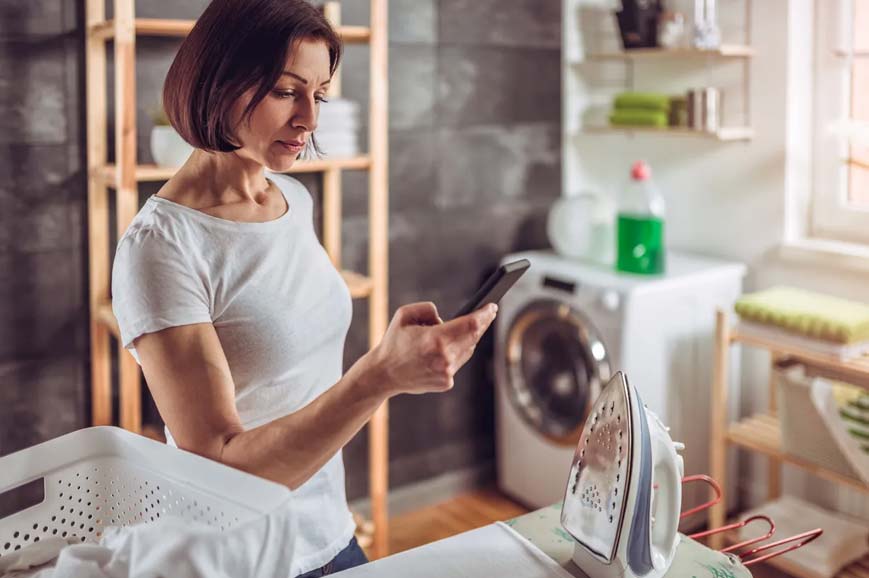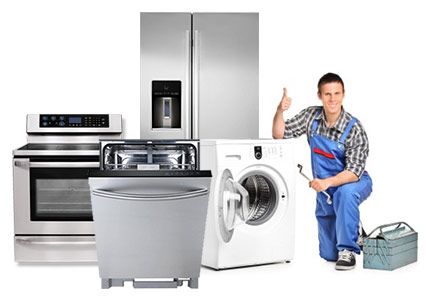The Ultimate Overview to Comprehending Device Repair Work at Home
When your fridge stops cooling down or your stove declines to heat, it can feel overwhelming. Comprehending device fixing at home can save you money and time. You'll discover to acknowledge signs, utilize essential tools, and follow a methodical troubleshooting process. But before you start, there are crucial security precautions you need to take into account. What are one of the most usual issues, and exactly how can you fix them? Let's explore the basics.
Usual Device Issues and Their Signs
When your home appliances start breaking down, it's necessary to recognize the indicators early on. Ignoring them can cause bigger issues and costly fixings. If your fridge isn't cooling down effectively, you might discover warm places or condensation forming. This can show a falling short compressor or an obstructed vent.Your dishwasher may show issues via unclean meals or unusual noises throughout cycles. If you hear grinding or clanking, it's time to investigate.A cleaning maker that will not rotate or drain can leave you with soaked laundry, recommending a stopped up drainpipe or a malfunctioning pump.Lastly, if your oven's temperature appears off or it takes permanently to pre-heat, you may be managing a malfunctioning thermostat. By remaining sharp to these signs, you can attend to problems prior to they escalate into major repairs.
Essential Tools for Home Appliance Repair
When you're tackling appliance repair work in the house, having the right devices is necessary. Standard hand tools like screwdrivers and pliers will help you disassemble and fix numerous home appliances, while electrical testing devices ensure you're functioning safely with wiring. Allow's look at what you require to obtain begun on your repair work journey.
Standard Hand Tools
Having the right devices is crucial for effective appliance repair at home. Beginning with a dependable screwdriver set, consisting of both flathead and Phillips types, as screws are typical in home appliance assembly. Pliers are additionally crucial; they assist with gripping, twisting, and cutting cords or little components. A pair of needle-nose pliers can get to tight places easily. You'll need an excellent adjustable wrench for tightening up or loosening up nuts and screws. An energy knife is handy for reducing with packaging or insulation. Do not fail to remember a sturdy workbench or surface area to securely organize your devices and parts. With these fundamental hand devices, you'll be well-prepared to take on most home appliance fixings that come your way.
Electric Screening Tools
Along with fundamental hand devices, electrical screening devices play an important duty in appliance fixing. These tools aid you diagnose electric concerns and assurance home appliances operate safely. A multimeter is essential; it measures voltage, present, and resistance, permitting you to pinpoint problems promptly. A non-contact voltage tester is another essential, letting you identify live cables without making straight get in touch with, improving your safety and security. Clamp meters are terrific for measuring present circulation in cords without disconnecting them, saving you effort and time. In addition, circuit testers can quickly check if outlets are working appropriately. By utilizing these tools, you'll streamline your troubleshooting process and improve your repair service abilities, making device upkeep a whole lot less complicated.
Step-by-Step Guide to Diagnosing Appliance Issues
When your appliance acts up, it can be aggravating, however identifying the problem doesn't have to be overwhelming. You'll learn to identify usual troubles and use effective troubleshooting techniques. Allow's go through the actions to obtain your home appliance back in working order.
Common Appliance Troubles

Fixing Techniques Explained

Fixing Major Kitchen Home Appliances: A Closer Look
Have you ever asked yourself how to take on typical concerns with your kitchen area devices? Repairing significant kitchen devices like refrigerators, stoves, and dishwashers can be easier than you assume. Beginning by determining the problem-- whether it's a refrigerator not cooling down or a stove that won't heat. Frequently, a basic reset or examining the power source can fix the issue.For fridges, clean the condenser coils and inspect the door seals. If your oven's not heating, examine the burner and thermostat. Dish washers may just require a clean filter or a reset to get them back at work. Always disconnect the home appliance prior to diving into fixings to assure your safety.Don' t neglect to consult the customer manual for specific repairing suggestions associated with your version. With a little persistence and the right devices, you can confidently tackle appliance repair work and save cash while doing so!

Fixing Laundry Appliances: Tips and Techniques
When your laundry home appliances start breaking down, it can feel frustrating, yet troubleshooting them does not need to be a trouble. Beginning by checking the power supply. Verify the device is plugged in and the outlet is working. Next off, inspect the door or lid button; a faulty switch can stop the equipment from operating.For washers, if it's not spinning, look for out of balance lots. Rearranging the clothes might resolve the problem. If your clothes dryer isn't home heating, tidy the lint filter and check the vent for blockages.Listen for unusual noises; they can suggest an issue. If your device is dripping, examine the hoses for cracks or loosened connections. Record any kind of error codes displayed on digital screens, as they can direct you in determining the concern. Ultimately, consult the user manual for specific troubleshooting tips related to your model.
Safety And Security Preventative Measures to Take Throughout Fixes
Before you start any home appliance fixings, it's necessary to focus on safety and security to stop mishaps or injuries. Unplug the appliance or transform off the circuit breaker to ensure no power reaches it while you work. Use shielded devices to reduce the risk of electrical shock. Use safety goggles and handwear covers to protect yourself from sharp sides or debris (Dependable Refrigeration & Appliance Repair Service Washer repair near me).Make specific your workspace is neat and well-lit, so you can see what you're doing. Maintain kids and navigate to this website pets far from the location to avoid disturbances great site and prospective threats. If you're taking care of gas appliances, be additional careful; check for leakages before proceeding.Take your time, and do not rush with repair services. If you really feel uncertain about any step, it's better to pause and research than to think. Adhering to these safety measures will certainly help develop a more secure environment for your DIY device repair job
When to Call a Specialist for Aid
How do you understand if it's time to call a professional for home appliance fixings? If you have actually attempted basic troubleshooting without success, it's a clear indication. As an example, if your appliance still won't start or shows unusual sounds after resetting it, do not wait to look for specialist help.When you notice leaks, smoke, or burning smells, prioritize security and call a professional quickly. These problems can result in more significant damage or pose risks to your home.Also, if your appliance is under warranty, contacting a professional is often the most effective route. They can assure that fixings will not nullify your guarantee, saving you money in the lengthy run.Finally, if you're not sure or uncomfortable with complex repair work, it's a good idea to leave it to the specialists. Bear in mind, dealing with complex issues without the right experience can bring about expensive blunders. Trust a professional when in doubt!
Often Asked Questions
How Can I Avoid Device Problems in the Future?
To avoid home appliance troubles in the future, you must carry out regular upkeep, check for damage, clean filters, and prevent overloading. Remaining positive will certainly help prolong their life-span and keep them running efficiently.
What Are one of the most Common Do It Yourself Appliance Fixing Mistakes?
You might forget safety precautions, miss fixing actions, or use incorrect tools when trying do it yourself home appliance repairs. Rushing the procedure or disregarding supplier guidelines can bring about more considerable concerns and costly mistakes. Stay client and notified!
Just how Do I Know if a Component Demands Replacement?
You can tell if a part needs replacement by looking for uncommon sounds, leaks, or inconsistent performance. If the device battles to operate properly or reveals noticeable damages, it's most likely time for a replacement.
Can I Use Generic Parts for Home Appliance Services?
Yes, you can use generic parts for home appliance fixings, but establish they work - Kenmore Dryer Repair Oro Valley Dependable Refrigeration & Appliance Repair Service. Generic components could conserve you cash, but they might influence efficiency or long life, so evaluate your options thoroughly before choosing
What Guarantees Cover Device Services?
Many home appliance warranties cover repair work for manufacturing issues, yet they often leave out see damages from abuse. Check your warranty terms carefully, as some may call for making use of certified technicians and original parts for coverage to continue to be legitimate.